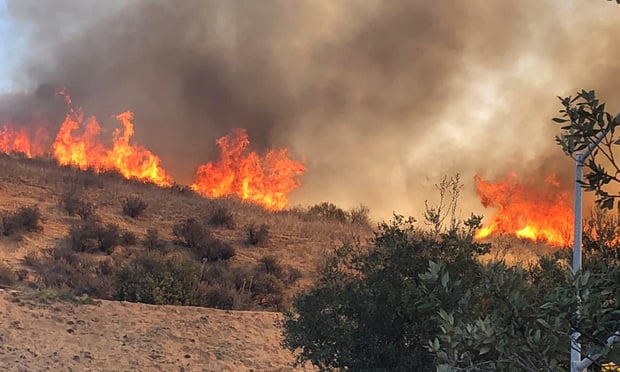JavaScriptA federal lawmaker who is one of the insurance industry's most vocal critics suggested at a Congressional hearing last week that insurers with Hurricane Katrina claims had cheated the National Flood Insurance Program.
"I am convinced that insurance adjusters billed the Flood Insurance Program for some damage that should have been covered by private wind insurance," Rep. Gene Taylor, D-Miss., testified at a House Financial Services Committee hearing.
He said his office had received "thousands of calls" regarding private insurers, but not one complaining of the NFIP's actions in handling claims.
Rep. Taylor sharply criticized carriers for their handling of claims after Hurricane Katrina and promised to "lay out the case" for a Congressional investigation of insurers at an upcoming hearing.
That session, scheduled for Feb. 28, will be before the Financial Services Subcommittee on Oversight and Investigations, which is chaired by Rep. Mel Watt, D-N.C.
"For thousands of destroyed properties in Mississippi, insurers assigned all damages to flooding covered by the National Flood Insurance Program, and none to their own windstorm policies," Rep. Taylor said in testimony before the committee.
Rep. Taylor--who sued his own insurer, State Farm, in a claims dispute after his Gulf Coast home was destroyed by Hurricane Katrina--added that the Mississippi coast "suffered several hours of very destructive hurricane winds before inundation by the storm surge."
Insurers have rejected thousands of claims where wind and storm surge were both involved, arguing they are not compensable under policy flood exclusion language.
A federal judge in Mississippi has ruled they must evaluate what percentage of home damage was due to wind, and the state attorney general has sued to invalidate such policies.
The NFIP, according to Rep. Taylor, paid an average of $142,000 for more than 18,000 flood claims in three counties along the coast, while insurers paid over 250,000 claims totaling more than $3.5 billion for the 79 counties in Mississippi that are not on the Gulf.
He also charged that insurers have a "conflict of interest" in that the NFIP gives them the obligation to adjust a claim for wind or water damage.
"The contract between NFIP and an insurance company requires an adjuster to represent the flood program as well as the insurance company," he said.
According to Rep. Taylor, "federal regulations require the adjuster to make a proper adjustment and apply the same standards to the flood claim as to the wind claim. That certainly did not happen in south Mississippi."
To help resolve the problem, Rep. Taylor said he would introduce legislation that would expand the NFIP to allow it to write multiperil policies, with premiums based on "actual risk," and with no subsidies.
"If this bill is enacted, property owners will be able to buy insurance and know that their damage will be covered," he said. "They would not have to hire lawyers, engineers and adjusters to try and prove what damage was caused by wind and what was caused by water."
Rep. Charles Boustany, R-La., noted that Hurricane Rita had also wreaked havoc on his area, and said the federal government should help insurers provide coverage to homeowners along the Gulf Coast by making it easier to obtain reinsurance and by allowing companies to set aside catastrophe reserves on a tax-deferred basis.
Rep. Charlie Melancon, D-La., also spoke critically of the problems of finding coverage for homeowners, noting that "private insurers have largely given up on Louisiana and other places where it appears they can't make an easy buck."
INDUSTRY REACTION
Insurance groups defended their actions post-Katrina, but also said they will work with lawmakers after being sharply criticized by Rep. Taylor.
Dennis Kelly, a representative for the American Insurance Association, declined to address Rep. Taylor's comments specifically, but said that "our industry is made up of hundreds of thousands of skilled professionals who work hard and ethically for policyholders daily."
Joseph Annotti, senior vice president for public affairs for the Property Casualty Insurers Association of America, said that insurers and their agents "overcome obstacles to accessing consumers and storm-ravaged properties to quickly and fairly settle millions of claims."
"The industry continues to be instrumental in helping to provide consumers and businesses with the financial resources necessary to rebuild their lives and communities," he added.
Mr. Kelly also said AIA would oppose Rep. Taylor's proposed legislation allowing NFIP to write multiperil policies.
"We support reforms to the NFIP, expanding it to cover more homes and businesses," Mr. Kelly said. "But we oppose expanding a government program to cover perils that the private market is already covering."
Both Mr. Kelly and Mr. Annotti said their groups were willing to work with policymakers in advance of the House Financial Services Subcommittee hearing on Feb. 28.
This article originally appeared in The National Underwriter P&C. For the complete article, please click here
Interested in more catastrophe news and in-depth articles? Head over to Claims' catastrophe channel for more information.
Want to continue reading?
Become a Free PropertyCasualty360 Digital Reader
Your access to unlimited PropertyCasualty360 content isn’t changing.
Once you are an ALM digital member, you’ll receive:
- Breaking insurance news and analysis, on-site and via our newsletters and custom alerts
- Weekly Insurance Speak podcast featuring exclusive interviews with industry leaders
- Educational webcasts, white papers, and ebooks from industry thought leaders
- Critical converage of the employee benefits and financial advisory markets on our other ALM sites, BenefitsPRO and ThinkAdvisor
Already have an account? Sign In Now
© 2025 ALM Global, LLC, All Rights Reserved. Request academic re-use from www.copyright.com. All other uses, submit a request to [email protected]. For more information visit Asset & Logo Licensing.








